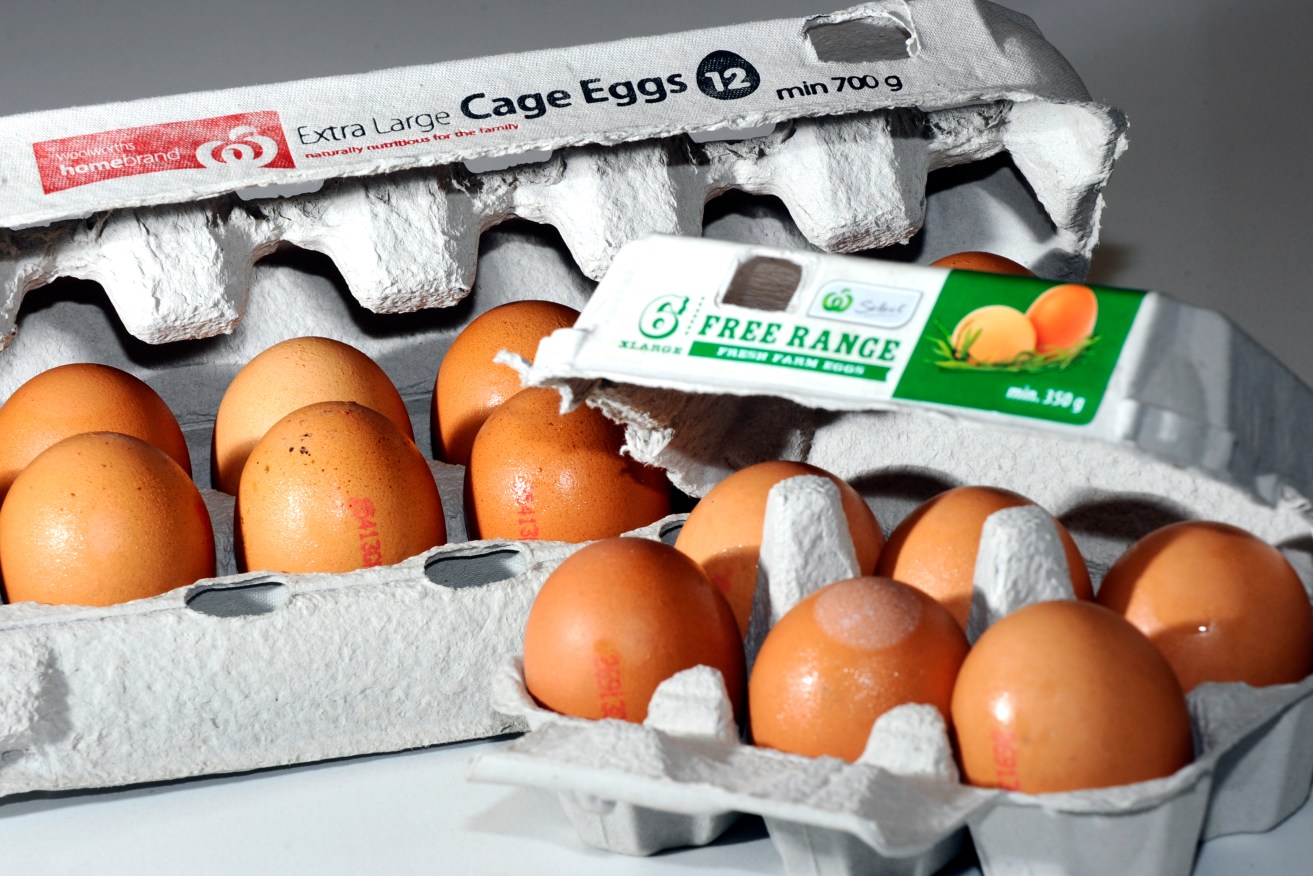Battery hens phase out is cooked, critics say

Major supermarkets are moving away from caged eggs. Photo: AAP
Battery hen eggs will be banned under a national agreement by the country’s agriculture ministers but states can decide when they bring it in.
Federal Agriculture Minister Murray Watt said some jurisdictions would move away from battery cages faster than others but all were working towards a deadline of 2036.
“Some states will be able to do it more quickly than others and if some states are struggling that is something we can discuss,” Senator Watt said.
The national standards, which includes the phase out of battery cages, was agreed to at a meeting in Perth on Thursday.
Caged hens make up half of the nation’s total egg production.
NSW would not commit to the timeline.
“We will work to our own timeline to make sure that we’re working with industry in NSW to get the best outcome,” Agriculture Minister Tara Moriarty told AAP.
“We’re going to work with industry so that we’re not impacting supply and we’re not worried about cost of living issues.”
Senator Watt said 2036 was a reasonable timeline that gave the industry plenty of time to adjust.
An independent review of animal welfare standards recommended an end to the use of battery hens by 2036, but industry advocates wanted the deadline pushed back by a decade.
Egg Farmers of Australia warned the target would lead to higher egg prices and compensation claims from producers.
Federal Nationals leader David Littleproud added to calls for an extension.
“Our egg farmers deserve support, not surprises, from state governments,” he said.
“Farmers have made investment decisions worth millions of dollars, predicated on the current guidelines, believing they had until 2046.”
Senator Watt rejected suggestions a cage ban would trigger price rises.
Supermarket giants Woolworths and Coles have agreed to phase out caged eggs from all the brands they sell by 2025.
Coles-branded eggs have been cage-free since 2013 and Woolworths since 2015.
Jed Goodfellow from Australian Alliance for Animals said it was disappointing a national timeline hadn’t been agreed.
“It doesn’t provide the level of certainty that the Australian community and indeed the industry wants to see,” Dr Goodfellow said.
“What’s the point of endorsing a national standard that includes a very definitive time frame, if it’s going to be left to each individual state to determine their own?
“With the supermarket commitments to phase out the use of caged eggs in their own supply chains by 2025, it’s very likely that the industry is going to be free of the battery cage system well before the 2036 timeline.”
Melinda Hashimoto from Egg Farmers of Australia said producers would also be disappointed.
“It really does leave farmers in limbo, it wasn’t the surety that we were hoping to get,” she said.
“Farming organisations now have the role to work with their state agricultural minister around the timing.”
-AAP








